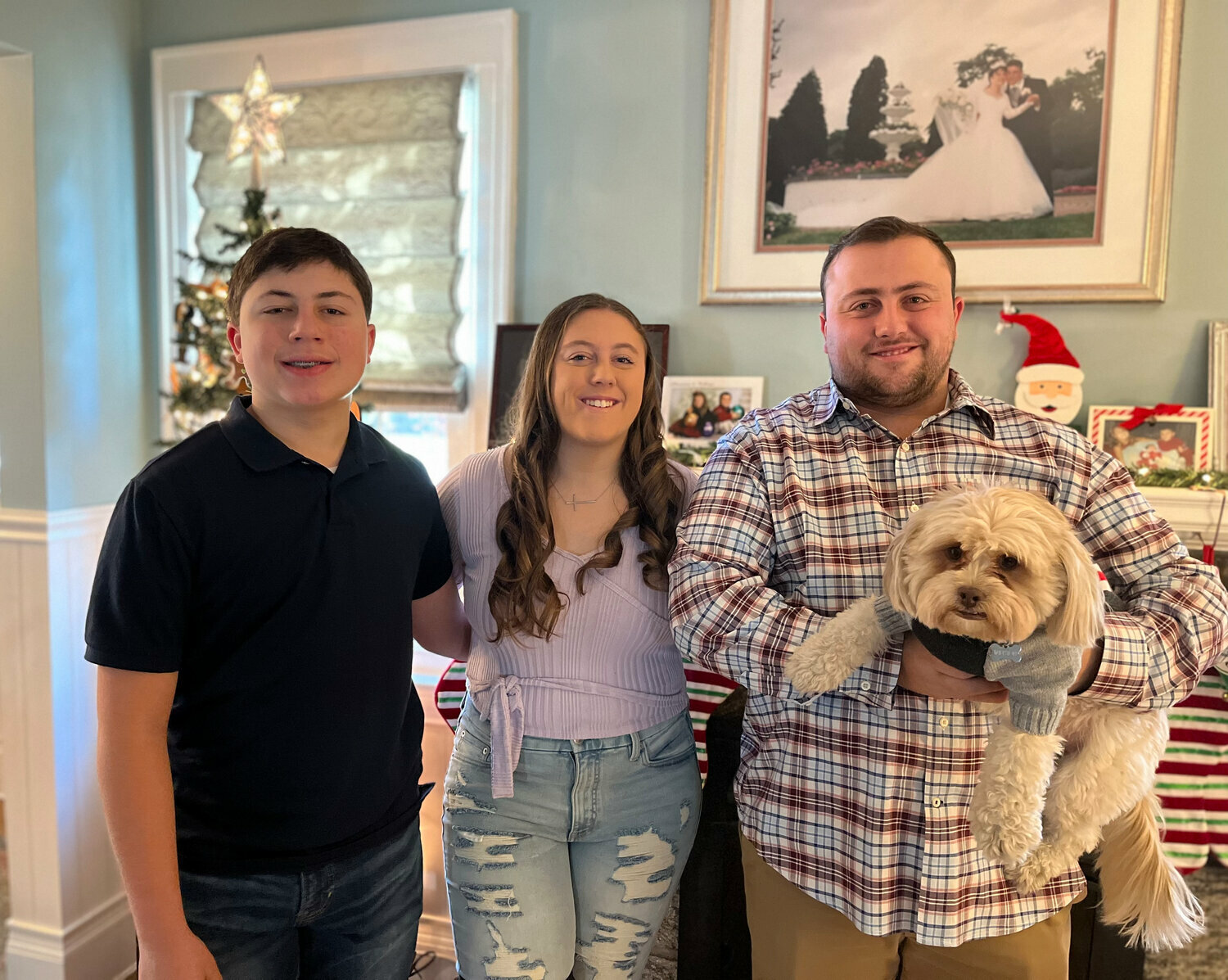What happened to pets adopted during the pandemic?
nuine love from a pet that understandably appealed to people during the 2020 Covid lockdown. Nearly one in five — or 23 million — American households got a new furry friend during the pandemic, according to the American Society for the Prevention of Cruelty to Animals. Now most of these pets are full-fledged members of the family. But for some of these pets, their forever home lasted only as long as the pandemic itself.
“We’ve seen an increase of animals getting surrendered,” said Johanna Baeyens, the founder and owner of the Lynbrook-founded animal rescue Lend-A-Paw, now based in Oceanside. “Because of either behavioral issues, or separation anxiety. A lot of people just don’t know how to deal with that. They just resort to surrendering their animal.”
Lend-A-Paw cares for many animals who were returned by previous owners. Bayens says that more of half of those returns are pets who were adopted during the pandemic.
“I think a lot of people didn’t find other ways of keeping themselves active or fixing the boredom,” she said. “Instead they just went and thought of a quick fix, to get an animal, and now they’re seeing the consequences.”
Baeyens said that pandemic pets continue to be returned. Someone gave back the two cats they adopted during lockdown because their living situation has changed now that the pandemic is over.
Elyse Jordan, the shelter manager at Bobbi and the Strays in Freeport, says the animal rescue ended up caring for several pets who were given back as life started to return to normal.
“We did get what we ended up calling pandemic puppies,” Jordan said. “Where people bought puppies while they were home all that time, and then once they went back to work, they didn’t have time.”
Luckily, the vast majority of animals adopted from Bobbi and the Strays have stayed with their families.
“We were all worried that once the pandemic was over, these people that went out and got dogs were going to return them,” Jordan said. “But we actually were quite surprised that we didn’t here.”
The adoption rate for adult cats saw a particular spike, nearly doubling during the pandemic.
Jordan noted that post-pandemic cat adoptions remained high because many people felt bad for the animals who were being returned, and wanted to give them the forever homes they deserved. This was life-changing for adult and senior cats who are often overlooked for adoption by families in favor of a kitten.
Cindy Roth, the founder of the animal shelter All About Cats in Freeport, says she saw a couple of instances of people returning pets they got during lockdown. These people cited allergies, although more than a year had passed since the initial adoption and things were beginning to return to relative normalcy.
“I think they got it as a kitten for entertainment, and it grew up, and then they didn’t need it around anymore,” Roth said.
Both cats have since found their forever families, as have the rest of the cats that were adopted during lockdown. All About Cats generally sees around 1200 adoptions each year.
During 2020, that number increased by several hundred. Roth says that for people who were adopting for the right reasons, the pandemic was the perfect time to introduce a new family member to their home.
“They were able to get a lot of love,” Roth said of the 2020 adoptees. Plus, she adds, it was good for people who needed a source of joy in their lives. “It’s medically proven that animals are good for the stress in your life. Older people that have animals live longer. It gives them joy and happiness in life.
This was exactly the case for Priscilla and Bill Pesek and their three children, who adopted Winston on April 23, 2020.
“I think what got us to really look for this puppy was we needed a lot of joy in our lives,” said Priscilla Pesek. “We needed some kind of love and happiness.”
Winston, who as a puppy was “a little ball of fur,” brought just that.
At a time when the family’s lives were interrupted and Bill, a funeral home director, was working nonstop, Winston was a source of family bonding and happiness.
“It just took a very bad time and made it into a very happy one,” Priscilla said. “The kids bonded with each other — they went on walks together, read books about how to train dogs together.”
Winston also kept the Peseks in touch with their community and other family members. When the kids walked Winston, neighbors were delighted by him and would stop to chat even while remaining six feet apart. Priscilla’s grandparents, mother-in-law, and preschool students were also big fans of Winston.

 49.0°,
Mostly Cloudy
49.0°,
Mostly Cloudy 




